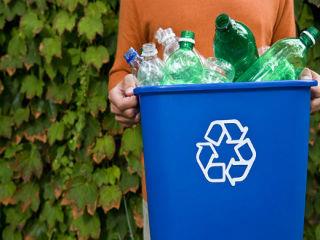The EU has a trash problem. It used to ship 60% of plastics and 13% of paper collected for recycling to China, but Beijing has decided to curb its appetite for foreign waste

But in the short term, there is no easy solution. China accounts for more than half of global demand for plastic waste and half of global paper scrap imports, and waste traders struggle to find alternative markets. The Bureau of International Recycling recently held its annual summit in India, the third largest waste importer after China and Hong Kong. “India for sure has huge potential, but the figures are not there yet,” said Arnaud Brunet, the director of BIR.
by
Paola Tamma
Last July China notified the WTO that it will ban imports of 24 categories of waste starting from January 2018, including plastics and mixed papers, and plans a total phase-out of waste imports by 2019, citing environmental concerns.
European recyclers saw a huge opportunity. “It’s a wake- up call: China made it very clear that they are not the landfill of Europe, and I think it’s totally right,”, said Ton Emans, president of the federation of European plastic recyclers (PSR). In the long, term, he said, “Europe can only win.”
But in the short term, there is no easy solution. China accounts for more than half of global demand for plastic waste and half of global paper scrap imports, and waste traders struggle to find alternative markets. The Bureau of International Recycling recently held its annual summit in India, the third largest waste importer after China and Hong Kong. “India for sure has huge potential, but the figures are not there yet,” said Arnaud Brunet, the director of BIR.
“We are talking about the biggest market, which is getting more difficult to reach and no single country has the capacity to be a substitute for it.”
In 2015, EU countries shipped in excess of 1 million tonnes of plastic waste to China, where the largely informal and labour-intensive plastic recycling industry sorted through it, often manually, and at high environmental costs.
When the Chinese government didn’t renew import licences for 2018, a surplus of plastic scraps flooded the European market and prices dropped. At least part could be recycled into new materials, but there is a lack of sorting capacity in the EU.
“If it is unsorted, nobody shows interest. The only thing you can do is burn it and that is a real pity for the resources that we could use”, said Emans. The same goes for mixed paper (2 million tonnes exported to China each year), which has high impurity levels due to mixed or “co-mingled” recycled paper.
Once this avenue closes, “our energy and climate change goals are at risk”, said Ulrich Leberle, speaking for the European paper industry (CEPI), “because we need to run equipment longer and with more energy to get rid of what’s in there.”
Excess paper, which is subject to strict stocking limits due to fire safety, could be burnt instead – something that goes against the EU’s waste hierarchy mandating recycling as a preferred option. But, and industry reports say it is already happening.
This, in turn, would impact recycling targets. France recycles 82,2% of its paper and cardboard, but this may change: “We notified the authorities that we risk seeing a drop in the recycling rate”, said Pascal Genevieve, of the French recycling federation FEDEREC.
Yet EuRIC, representing European recycling industries, sees the Chinese ban both as a threat and an opportunity. Supply of scrap materials far exceeds demand in Europe, and retaining access to international markets is key. On the other hand, this sudden market shock might trigger a rethink of the EU’s recycling policy.
EU institutions are currently renegotiating four directives on waste, packaging, landfill and end-of-life treatment of vehicles and batteries as part of the circular economy package. The European parliament seeks stricter and more ambitious recycling targets and compulsory schemes to make manufacturers accountable for end-of-life treatment of products, a proposal opposed by a number of member states.
The European Commission is due to announce its Plastics Strategy in January, aimed among other things at increasing the rate of plastic recycling (currently at 30%), stopping leakage into the environment, and encouraging the use of recycled materials.
Recyclers are lobbying for a mixture of carrot and stick, combining targets with pull measures such as green public procurement schemes for recycled materials, and lower VAT for products with recycled components.
EuRIC secretary general Emmanuel Katrakis said: “If we want to be in a better position, in a more circular economy, we need to go a step forward and pull the market into more sustainable practices by valuing the positive externalities of recycling. If we go that way, Europe will be better off in ten years’ time.”




 By: N. Peter Kramer
By: N. Peter Kramer

